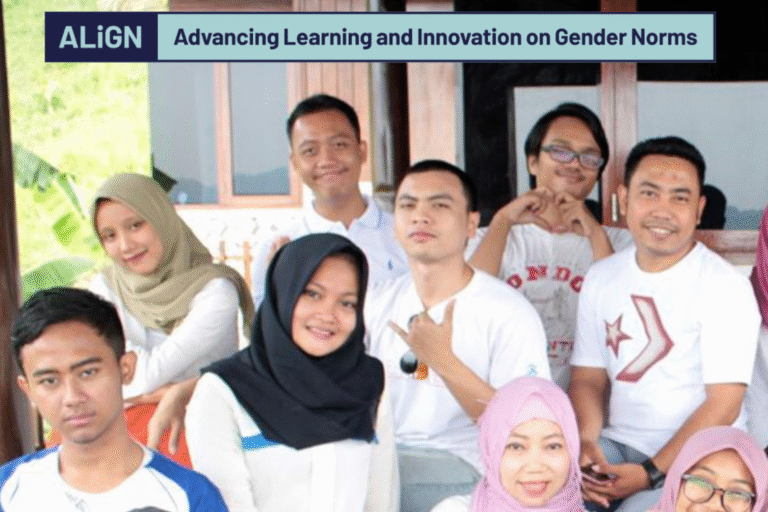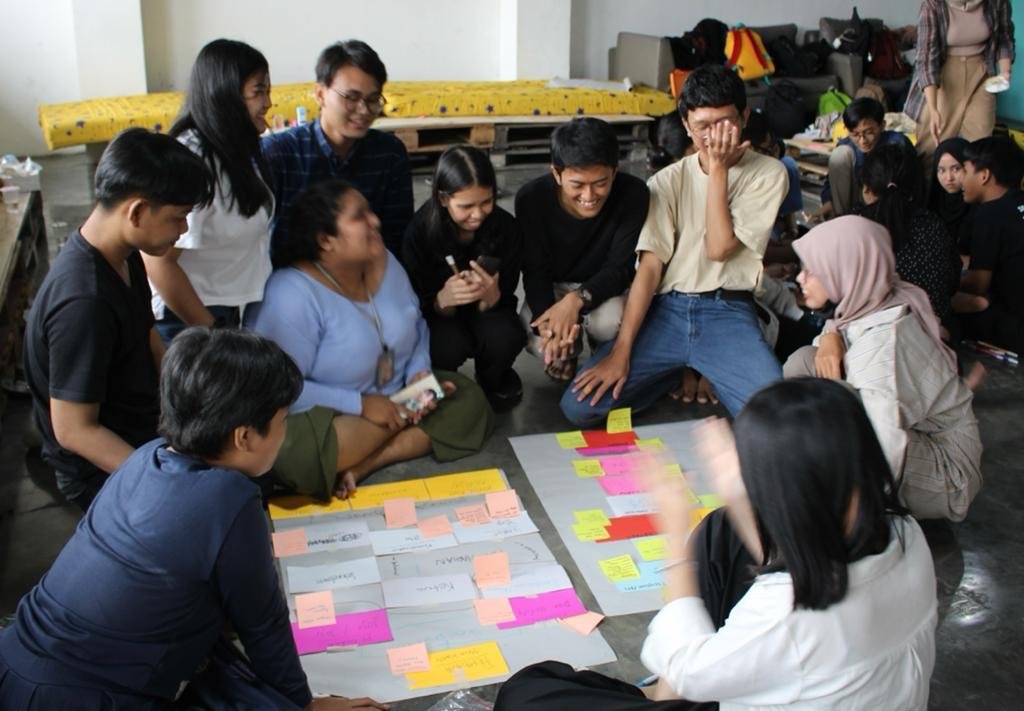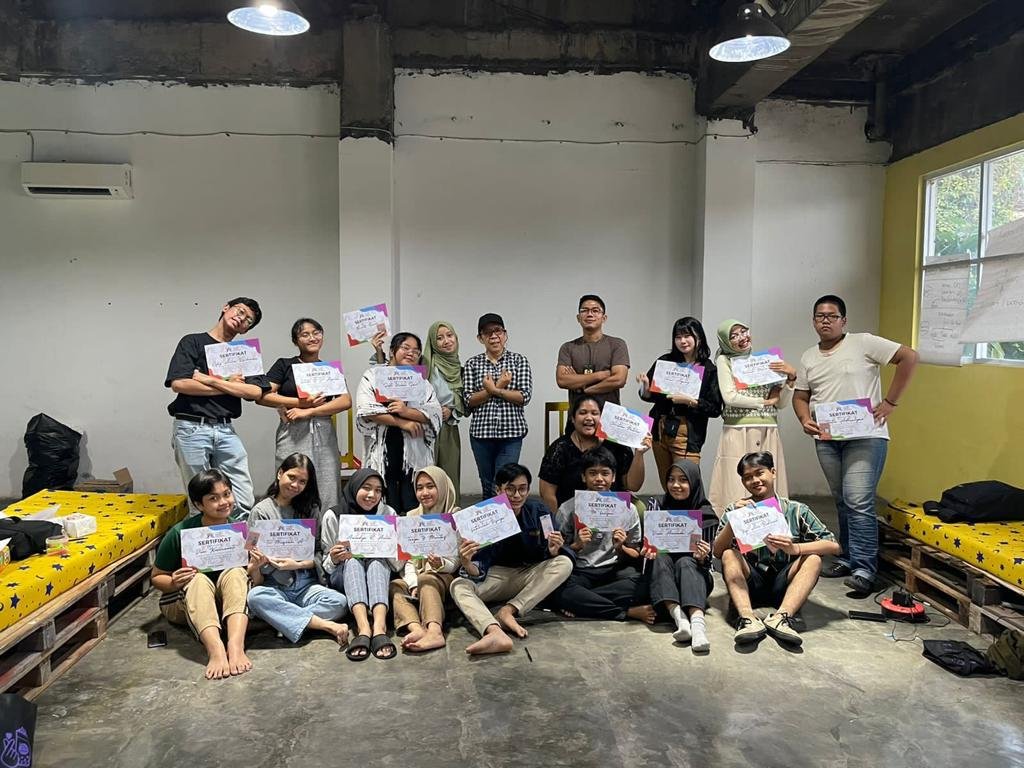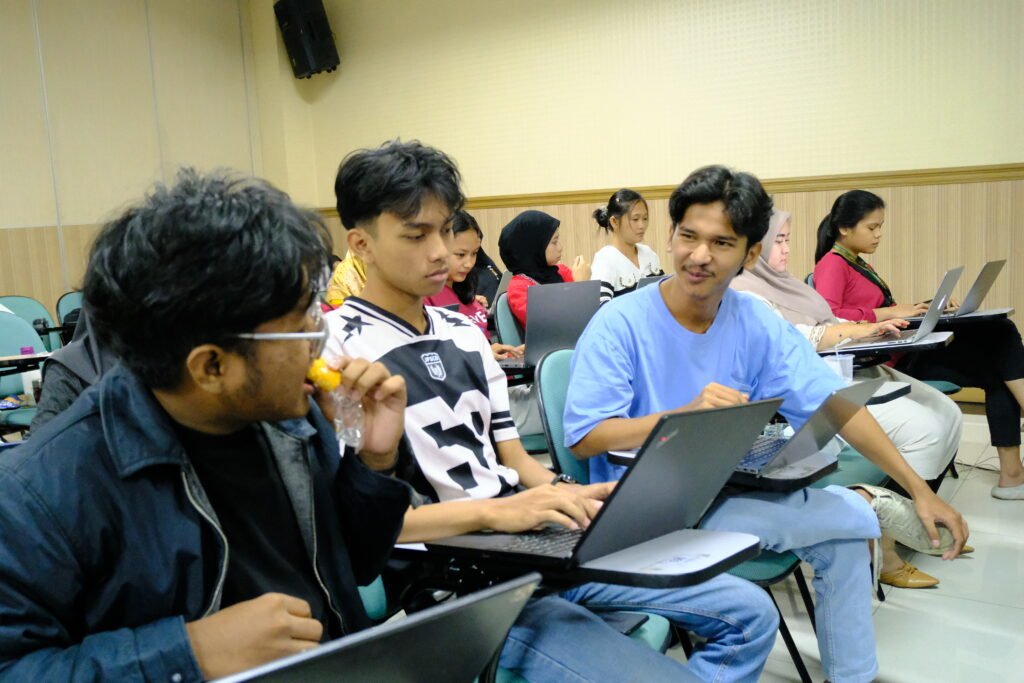- +62 8952-5333-733
- info@ari.or.id
Our Projects
Empowering Indonesia’s Youth Through Action
Aliansi Remaja Independen (ARI) has implemented evidence-based, youth-driven initiatives across Indonesia since 2012. Our projects are co-designed with young people and tailored to address real challenges in Sexual and Reproductive Health and Rights (SRHR), social diversity and inclusion, and youth entrepreneurship.
Our Book & Research
A Glime of Our Experiences
The Last Five Years
3 Provinces Across Indonesia
Empowering Rural Youth in Sexual and
Reproductive Health & Rights (SRHR)
This initiative addresses the acute lack of SRHR information and services in rural communities, where stigma, misinformation, and limited infrastructure often leave young people vulnerable. ARI began with participatory needs mapping, engaging directly with adolescents to understand their lived realities, concerns, and information barriers. Based on these insights, ARI trained 30 peer educators—youth selected from within their own communities—who were equipped with accurate, rights-based SRHR knowledge, including topics on bodily autonomy, consent, gender-based violence prevention, contraception, and access to youth-friendly health services.
These peer educators then conducted outreach to 200 fellow adolescents, using culturally appropriate, non-judgmental approaches that resonated with local contexts. Critically, the program’s findings and youth-generated recommendations were formally integrated into high-level policy processes, including Indonesia’s National Long-Term Development Plan (RPJPN) and Village Development Planning Forums (Musrenbangdes). This ensured that rural youth voices—often excluded from national discourse—directly influenced planning and budgeting decisions that affect their lives, embodying ARI’s principle of meaningful youth participation.

Jakarta & Makassar
Mystery Client Research on Adolescent Health Service
To address the persistent gap between policy and practice in adolescent health services, ARI pioneered the use of mystery client methodology an innovative, youth-centered research approach. Trained adolescent volunteers posed as ordinary service users to assess the accessibility, quality, confidentiality, and non-discrimination of public health facilities offering SRHR services.
These mystery clients evaluated real-time interactions with healthcare providers, documenting whether staff demonstrated respect, provided accurate information, maintained privacy, and avoided judgmental attitudes particularly on sensitive issues like contraception or premarital counseling. The resulting data painted a stark picture of systemic shortcomings, including lack of provider training, inconsistent service standards, and youth-unfriendly environments.
ARI synthesized these findings into actionable policy briefs and mapping documents, which were presented to local health offices in Jakarta and Makassar. These recommendations have since informed local government strategies to improve adolescent-friendly health services, proving that youth-driven evidence can catalyze tangible, institutional change.
Nationwide | 1,200+ young people from diverse backgrounds
Youth Pledge Celebration & Advocacy Series
Marking the historic Youth Pledge (Sumpah Pemuda), ARI organized a nationwide series that fused national identity with contemporary youth activism. This initiative brought together over 1,200 young people—including those from religious, ethnic, gender, and socioeconomic minorities—for a powerful blend of historical reflection, capacity building, and advocacy action.
The program featured interactive workshops on tolerance, anti-discrimination, SRHR, and civic engagement, alongside commemorative events that honored Indonesia’s legacy of unity in diversity. Crucially, participants explored how the spirit of the 1928 Youth Pledge remains relevant today—especially in resisting rising intolerance, promoting inclusive nationalism, and defending the rights of all young people.
Through panels, peer dialogues, and creative expression (e.g., art, storytelling, and social media campaigns), the series reaffirmed that national unity must be rooted in justice and inclusion. Alumni of the program continue to serve as local champions in their schools and communities, advancing ARI’s vision of a diverse, equitable, and youth-empowered Indonesia.


Five Provinces | Reach 140,000+ young people
Meaningful Youth Participants Program
Spanning five years, this flagship program represents ARI’s sustained investment in building a youth-led SRHR movement across Indonesia. Moving far beyond token consultation, the initiative fosters genuine co-creation, where young people lead advocacy efforts, design campaigns, and shape program strategies. The program’s multi-pronged approach includes:
- Technical assistance to youth-led organizations to strengthen their governance and advocacy capacity;
- Large-scale public awareness campaigns (both digital and offline) to shift social norms around SRHR and gender equality;
- Capacity-building workshops on policy literacy, leadership, and human rights; and
- Facilitation of dialogue spaces between youth and government stakeholders.
Over 100,000 young people directly enhanced their skills in SRHR advocacy, while mass media efforts extended the message to over 140,000 individuals nationwide. The program’s success lies in its ability to transform passive beneficiaries into active agents of change, ensuring that young people—especially those from marginalized groups such as LGBTQ+ youth, religious minorities, and low-income communities—are not only heard but centrally involved in shaping SRHR policies that impact their futures.
Jakarta | 600+ Vocational School Students
Wired for Work:
Access to Employment & Entrepreneurship
Wired for Work (W4W) is a dynamic, three-month intervention designed specifically for vocational school students in Jakarta who stand at the critical crossroads between education and economic independence. Recognizing that formal curricula often fall short in equipping youth with real-world competencies, ARI developed the W4W Life Skills Module—a comprehensive, interactive curriculum grounded in evidence-based practices. This module covers essential domains such as financial literacy, personal and business budgeting, effective communication, decision-making, time management, and career readiness.
Beyond classroom-style learning, the program emphasizes peer-to-peer support, where participants mentor one another, fostering a collaborative learning environment that builds confidence and accountability. Crucially, W4W connects youth directly to job-matching platforms and local entrepreneurial ecosystems, transforming knowledge into opportunity. Over the course of 16 structured sessions, students not only gain practical skills but also develop a stronger sense of agency—enabling them to either secure formal employment or launch micro-enterprises with clarity and competence. The program exemplifies ARI’s commitment to bridging systemic gaps between education and economic participation, particularly for youth from under-resourced backgrounds.

Links
- Home
- Projects
- About Us
Support
- Privacy Policy
- Terms & Conditions
- FAQs
- Contact
Find Us
- +62 89-525-333-733
- Jakarta, Indonesia
- info@ari.or.id
Socials
- Youtube
Notice
- All Rights Reserved
- © Copyright 2025
- Aliansi Remaja Independen
